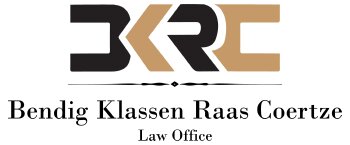Best Collaborative Law Lawyers in Prince Albert
Share your needs with us, get contacted by law firms.
Free. Takes 2 min.
Free Guide to Hiring a Family Lawyer
List of the best lawyers in Prince Albert, Canada
About Collaborative Law in Prince Albert, Canada
Collaborative Law in Prince Albert, Canada, is an alternative dispute resolution process that emphasizes cooperation over confrontation in resolving legal disputes. It is a voluntary process wherein both parties, along with their lawyers, agree to work together respectfully and honestly to reach a mutually beneficial settlement. This process is particularly popular for family law matters like divorce, custody arrangements, and property division, as it seeks to minimize conflict and create a tailored solution that meets the needs of everyone involved.
Why You May Need a Lawyer
Collaborative Law can be especially beneficial in several situations, including:
- Divorce or separation, where the parties wish to end their marriage amicably and without the adversarial nature of court proceedings.
- Child custody and access disputes, which require sensitive and cooperative approaches to determine the best interests of the children involved.
- Property and asset division, which can be more effectively addressed through open, transparent discussions.
- Disagreements over support payments where both parties seek to reach a fair financial arrangement.
- Other family-related legal matters requiring a customized approach that promotes dignity and respect in resolving conflicts.
Local Laws Overview
Prince Albert, as part of Saskatchewan, follows both provincial and federal laws applicable to Collaborative Law. Some key aspects include:
- Family Services legislation that governs divorce, child support, and custody matters, aligning with the principles of Collaborative Law.
- Saskatchewan's Family Property Act, which details how property and assets should be divided equitably during a separation.
- The importance of confidentiality in the Collaborative Law process, ensuring discussions remain private and cannot be used in court if the process does not conclude successfully.
- The disqualification provision, where lawyers involved in the collaborative process cannot represent clients if the case proceeds to litigation, encouraging resolution through collaboration.
Frequently Asked Questions
What is Collaborative Law?
Collaborative Law is a structured process where parties and their lawyers commit to resolving disputes outside of court through cooperative negotiations.
How does Collaborative Law differ from traditional divorce proceedings?
Unlike traditional proceedings that are often adversarial, Collaborative Law focuses on negotiation and problem-solving, striving for solutions that benefit all parties and reduce conflict.
What types of cases are suitable for Collaborative Law?
Though frequently associated with family law matters, Collaborative Law is suitable for any case where parties are willing to negotiate and seek a mutually beneficial outcome.
Can Collaborative Law be used for non-family conflicts?
Yes, while it's most commonly used in family disputes, Collaborative Law can be applied to business disputes, employment disagreements, and other civil matters.
What role does the lawyer play in Collaborative Law?
The lawyer acts as a legal advisor and facilitator, guiding their client through negotiations and ensuring legal rights and responsibilities are upheld.
Am I obligated to reach an agreement in Collaborative Law?
No, the process is voluntary, and parties are empowered to make decisions at their own pace. If an agreement isn't reached, parties can explore other dispute resolution options.
What happens if the Collaborative Law process fails?
If it fails, the parties can proceed to court, but they must retain new lawyers as those involved in the collaboration are disqualified from court proceedings.
How long does a typical Collaborative Law process take?
Duration varies based on the complexity of issues and the willingness of parties to negotiate, but it generally takes less time than traditional court proceedings.
Are there any cost benefits to Collaborative Law?
Potentially, yes. Since the process can be quicker and less contentious, it often results in lower legal fees compared to lengthy court battles.
How do I start the Collaborative Law process?
To begin, both parties must agree to the Collaborative Law process and retain lawyers trained in this practice who will help navigate the process.
Additional Resources
For those seeking more information on Collaborative Law in Prince Albert, helpful resources include:
- Saskatchewan Law Society for finding qualified Collaborative Law lawyers.
- Prince Albert Family Services, offering support and resources for family law matters.
- Local community legal aid organizations for initial guidance and information.
- The International Academy of Collaborative Professionals for educational materials.
Next Steps
If you believe Collaborative Law might be appropriate for your situation, consider the following steps:
- Research and contact a lawyer in Prince Albert who specializes in Collaborative Law to discuss your case.
- Discuss your needs and goals openly with your lawyer to determine if Collaborative Law fits well with your objectives.
- Ensure you and the other party are open to the collaborative process. Agreement from both parties is essential to commence.
- Participate actively and honestly in discussions to reach a resolution that benefits everyone involved.
Lawzana helps you find the best lawyers and law firms in Prince Albert through a curated and pre-screened list of qualified legal professionals. Our platform offers rankings and detailed profiles of attorneys and law firms, allowing you to compare based on practice areas, including Collaborative Law, experience, and client feedback.
Each profile includes a description of the firm's areas of practice, client reviews, team members and partners, year of establishment, spoken languages, office locations, contact information, social media presence, and any published articles or resources. Most firms on our platform speak English and are experienced in both local and international legal matters.
Get a quote from top-rated law firms in Prince Albert, Canada — quickly, securely, and without unnecessary hassle.
Disclaimer:
The information provided on this page is for general informational purposes only and does not constitute legal advice. While we strive to ensure the accuracy and relevance of the content, legal information may change over time, and interpretations of the law can vary. You should always consult with a qualified legal professional for advice specific to your situation.
We disclaim all liability for actions taken or not taken based on the content of this page. If you believe any information is incorrect or outdated, please contact us, and we will review and update it where appropriate.









